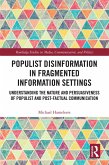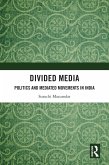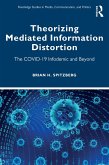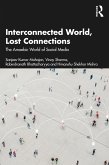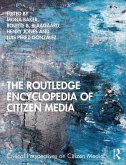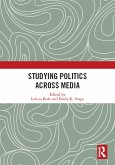Using comparative empirical evidence collected in the US, the UK, and the Netherlands, this book explores the politics and discursive construction of populism and disinformation, how they co-occur, their effects on society, and the antidotes used to combat the consequences of these communicative phenomena.
This book is an essential text for students and academics in communication, media studies, political science, sociology, and psychology.
Dieser Download kann aus rechtlichen Gründen nur mit Rechnungsadresse in A, B, BG, CY, CZ, D, DK, EW, E, FIN, F, GR, HR, H, IRL, I, LT, L, LR, M, NL, PL, P, R, S, SLO, SK ausgeliefert werden.



